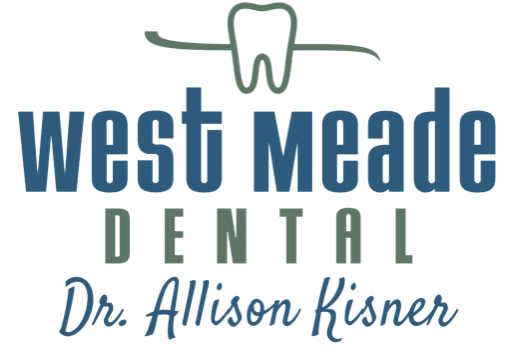Dental Bridges
Losing a tooth can be a challenging experience, both functionally and aesthetically. Fortunately, our dental bridges in Nashville are a tried-and-true method of tooth replacement that restores your smile and oral health. There are various dental bridges with many benefits to enhance your dental well-being.

What Are Dental Bridges?
Dental bridges are a type of dental restoration that literally bridges the gap created by one or more missing teeth. They are anchored on either side by dental crowns placed on the teeth adjacent to the gap. The false tooth, known as a pontic, is then attached to the crowns, effectively filling in the area of tooth loss.
Types of Dental Bridges
There are several types of dental bridges, each with its own set of advantages and considerations:
- Traditional bridges are the most common and consist of a false tooth or teeth being held in place by dental crowns that we cement to the teeth on either side of the gap.
- We can use cantilever bridges when adjacent teeth are on only one side of the missing tooth or teeth.
- Maryland-bonded bridges (resin-bonded bridges or Maryland bridges) are made of porcelain, porcelain fused to metal, or plastic teeth and gums supported by a metal or porcelain framework. Metal or porcelain wings, often on just one side of the bridge, are bonded to your existing teeth.
- Implant-supported bridges use dental implants to provide support for the bridge. This approach is considered the most robust and most long-lasting bridge option.
Benefits of Dental Bridges
Dental bridges offer a range of benefits beyond simply filling in the gaps in your smile. Here are some of the ways that dental bridges can enhance your oral health and daily life.
Restoring Missing Teeth
Bridges are an effective solution for restoring a missing tooth or teeth, making eating and speaking normally easier. The restoration also helps distribute the forces in your bite correctly, which can prevent other teeth from shifting out of position.
Improving Chewing and Speaking Abilities
When teeth are missing, the bite force becomes concentrated on the remaining teeth, leading to difficulty chewing and increased wear on the remaining teeth. Bridges help re-establish a healthy bite, allowing you to chew more naturally and efficiently. They also aid in proper pronunciation and speech patterns.
Maintaining Facial Structure and Preventing Bone Loss
The loss of a tooth can lead to the loss of bone in the area of the gap. Bridges provide the necessary stimulation to prevent bone loss and can help maintain the natural shape of your face, which is often altered with tooth loss.
Enhancing Smile Aesthetics
One of the most noticeable benefits of a dental bridge is the improvement in the appearance of your smile. A bridge can give you a more aesthetically pleasing smile by filling in gaps and correcting tooth alignment issues.
Boosting Self-Confidence and Overall Quality of Life
Having a complete smile can significantly boost your self-confidence and self-esteem. This can improve social and professional interactions, enhancing overall quality of life.
The Dental Bridge Procedure
Understanding the procedure for getting a dental bridge can help alleviate your anxiety about the process.
Evaluation and Consultation
Your journey to a restored smile begins with a consultation. Dr. Kisner will evaluate the area requiring a bridge and discuss the various types of bridges available to you. She and her team will take X-rays to help plan the treatment.
Tooth Preparation and Impressions
We’ll recontour the teeth on either side of the gap to make room for the crowns. We’ll take impressions of your teeth, which serve as the model for the bridge, pontic, and crowns.
Temporary Bridge Placement
While the final bridge is being fabricated, we can place a temporary bridge to protect the exposed teeth and gums. It is vital to return for the final bridge fitting, as the temporary bridge is not as durable as the permanent one and does not offer the same level of protection.
Final Bridge Placement and Adjustments
The new bridge will be fitted and adjusted during your final visit to ensure a proper fit. We’ll use dental cement to secure the bridge over your natural teeth or dental implants.
Caring for Dental Bridges
To make your dental bridge last as long as possible, it’s essential to maintain proper care and hygiene.
Proper Oral Hygiene Practices
Good oral hygiene is crucial for the longevity of your bridge. Regular brushing and flossing, including flossing under the false tooth, help prevent decay and gum disease that can lead to bridge failure.
Regular Dental Check-ups and Cleanings
Schedule regular check-ups with our team to ensure your bridge and the surrounding teeth are in good condition. Professional cleanings will keep your gums healthy and bridge debris-free.
Dietary Considerations
While dental bridges significantly improve chewing function, you should still consider some dietary precautions. Avoiding very hard foods or sticky candies can protect the longevity of your bridge.
Dental Bridges in Nashville
The benefits of a dental bridge go far beyond the cosmetic, providing a comprehensive solution to tooth loss that contributes to your overall oral health and well-being. If you’re considering a dental bridge, consult Dr. Allison Kisner at West Meade Dental to explore the options available and take the first step towards confidently smiling and enjoying life to the fullest.
Our quality dental services include cosmetic dentistry, family dentistry, and restorative dentistry in Nashville, TN. Contact us today to get started!

